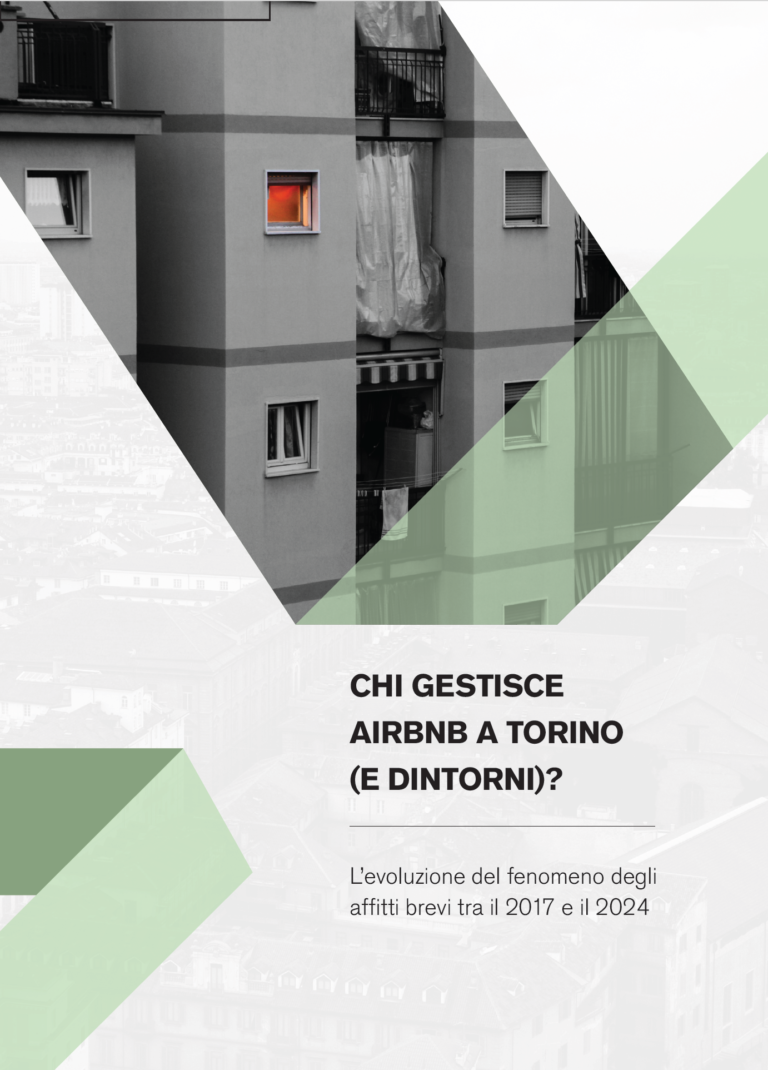Con quasi 10.000 annunci attivi nel 2024, Torino è la sesta città italiana per diffusione della piattaforma Airbnb, segnando un +50% in 7 anni e confermando la sua crescita nel settore turistico. Il Future Urban Legacy Lab, dopo aver pubblicato il rapporto sull’andamento degli affitti brevi tra il 2017 e il 2024 a livello nazionale, ha analizzato in dettaglio la situazione del capoluogo piemontese.
Il mercato degli affitti brevi a scopo turistico a Torino è cresciuto rapidamente tra il 2017 e il 2024: +125% in termini di notti prenotate, +127% in termini di ricavo per annuncio, +240% in termini di valore economico complessivo generato attraverso la piattaforma di ricavi totali, che nel 2024 hanno superato i 68 milioni di euro. Nonostante tali aumenti, il mercato torinese degli affitti brevi a scopo turistico non raggiunge i livelli di altre zone d’Italia: per esempio, in Italia i ricavi medi per singola unità affittata tramite Airbnb nel 2024 era pari a 11.700 euro, mentre a Torino si sono fermati a 7000 euro.
Dal lato dell’offerta, gli host (ossia i gestori di un’abitazione affittata tramite Airbnb) attivi nel capoluogo piemontese erano, nel 2024, oltre 6.000. L’87% di essi era costituito da “small host”, che gestivano al massimo due abitazioni. Ma a crescere in modo più rilevante sono stati i cosiddetti “large host”, cioè soggetti che gestiscono più di 10 unità: seppur siano solo il 2% del totale, essi controllavano nel 2024 il 18% dell’intero mercato cittadino, una quota più che raddoppiata dal 2017 (+230%). La crescita percentuale di unità gestite da large host a Torino è più marcata del dato nazionale, pari al 136%. Da questo punto di vista, il mercato torinese sembra essere “in ritardo” rispetto alle linee di tendenza diffuse a livello italiano (nel nostro paese, nel 2024 i large host intercettavano il 25% delle unità totali); tuttavia, è anche a fronte di ciò che nel capoluogo piemontese la crescita dei “grandi padroni di casa” è stata particolarmente elevata nel periodo considerato, superiore a quella di città con un mercato turistico più “maturo”, come Roma o Venezia. A Torino, tuttavia, la dimensione media di queste gestioni è più contenuta rispetto al dato nazionale (15 contro 42 unità per host). Come nel resto d’Italia, gli alloggi gestiti dai grandi host generano ricavi più alti: in media 10.500 euro all’anno per unità, contro 5.500 per i piccoli host.
La geografia cittadina degli annunci mostra forti squilibri: sei quartieri su 23 (Centro, San Salvario, Aurora, San Donato, Crocetta e Vanchiglia) concentrano il 58% dell’offerta. Il quartiere Centro da solo ospita un quarto degli annunci e registra anche i ricavi più alti (11.300 €/anno). La periferia – Falchera, Mirafiori, Regio Parco – è invece l’area meno redditizia.
Il fenomeno non si ferma ai confini comunali. L’analisi condotta a livello metropolitano evidenzia una diffusione crescente verso i comuni dell’hinterland e delle valli alpine. Emblematico è il caso di Ala di Stura, piccolo comune montano dove in sette anni gli annunci sono triplicati e i posti letto quadruplicati.
Questi dati sollevano interrogativi sulle trasformazioni in corso nel tessuto urbano e sociale della città e del suo territorio: chi beneficia di Airbnb a Torino? E quali interventi sono possibili per evitare squilibri?
